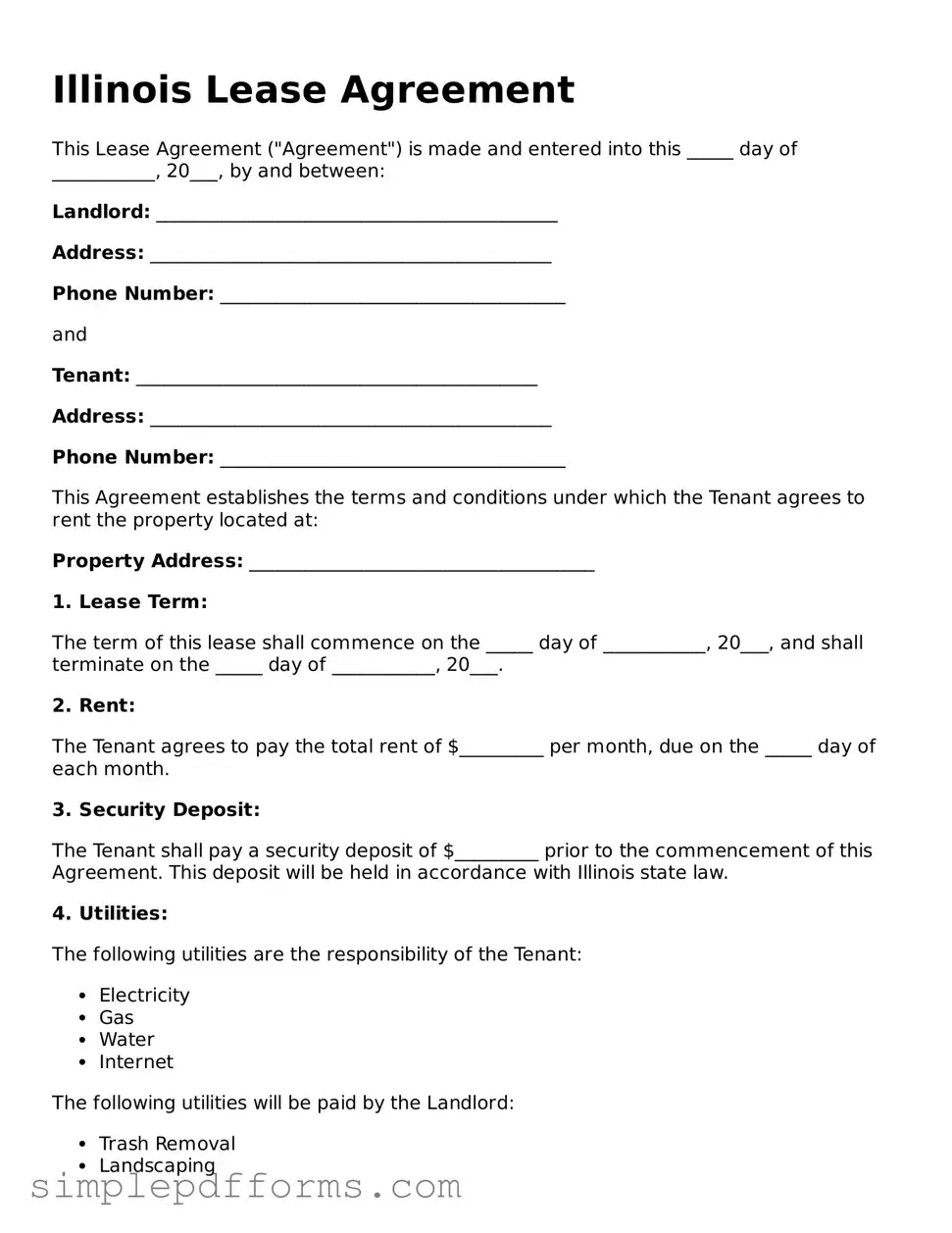Attorney-Verified Lease Agreement Document for Illinois State
The Illinois Lease Agreement form is a legal document that outlines the terms and conditions between a landlord and tenant for renting a residential property. This form serves to protect the rights of both parties, ensuring clarity on rental terms, payment schedules, and responsibilities. Understanding this document is crucial for anyone involved in a rental arrangement in Illinois.
Open Lease Agreement Editor Now

Attorney-Verified Lease Agreement Document for Illinois State
Open Lease Agreement Editor Now

Open Lease Agreement Editor Now
or
Get Lease Agreement PDF Form
Your form is waiting for completion
Complete Lease Agreement online in minutes with ease.